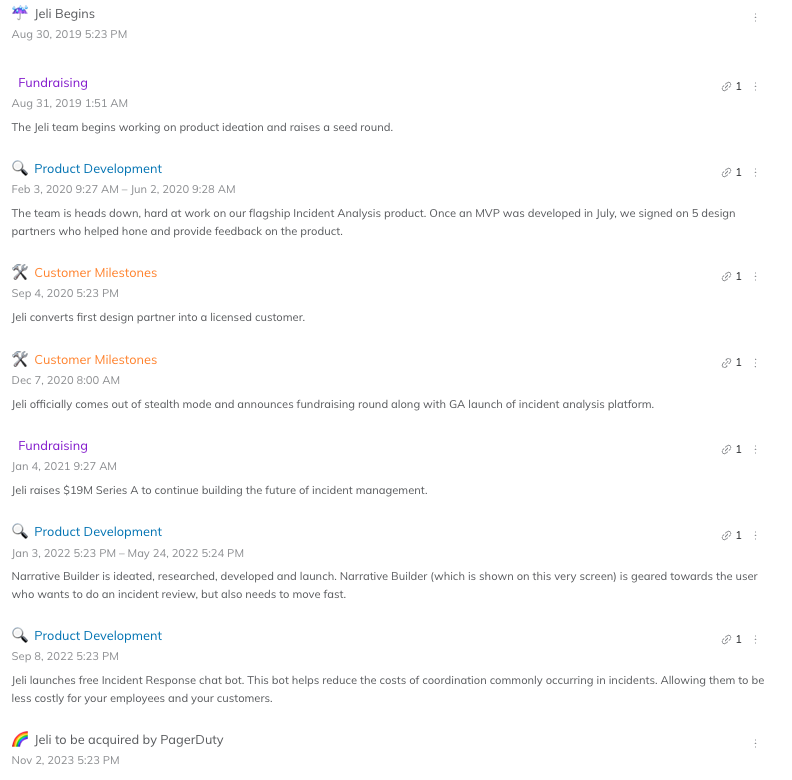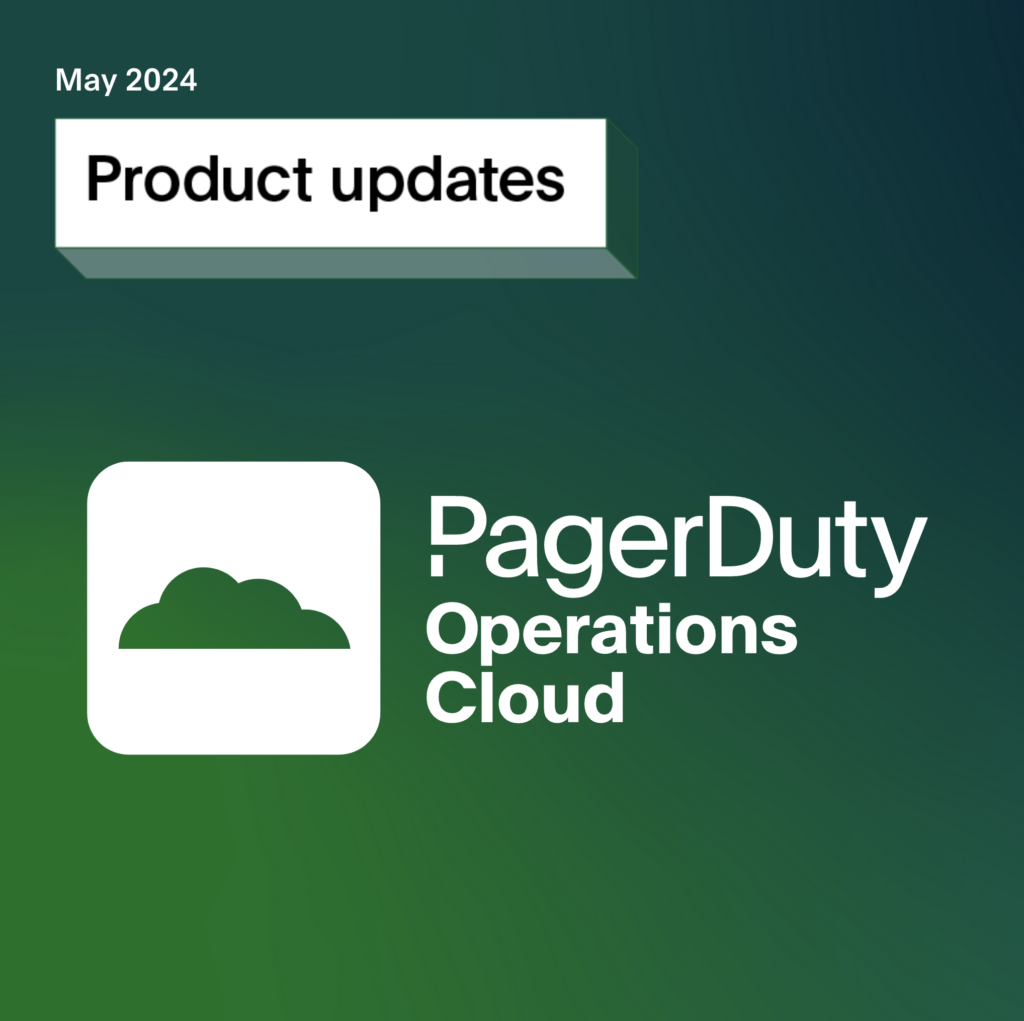- PagerDuty /
- Blog /
- Announcements /
- PagerDuty and Jeli connect the incident management lifecycle
Blog
PagerDuty and Jeli connect the incident management lifecycle
This post was originally published on the Jeli blog. Jeli was acquired by PagerDuty in 2023 and we’re reposting it here to bring their thought leadership to our community.
Today, I am excited to announce that Jeli has entered an agreement to be acquired by PagerDuty.
PagerDuty was one of the very first integrations we built at Jeli (before we even had customers). You see, we’re a team of people who have been carrying the pager our entire careers – most of the early folks on the Jeli team were incident responders, analysts, or site reliability engineers. We were also a group of people wanting to improve how we carried the pager to better our businesses through less interruptions – what better way to do that than to reflect on past times it’s alerted us? Jeli’s product was partially built on improving the on-call experience, improving the cost behind incidents, and with the power and resources of PagerDuty we have an excellent opportunity to accelerate the mission that has always driven us.
Jeli’s History
Jeli’s story so far would not be valuable without a Jeli Narrative Builder timeline, so I built out our history on the timeline here — starting in August 2019, when we first began working on Jeli.

We knew we wanted to integrate deeply with chat tools (like Slack, to start) and incident management tools — but here’s what we wanted to do differently: we wanted to incorporate the commonly overlooked, yet incredibly important elements of incidents — the people.
SREs know a lot about the risks in companies, yet I’ve repeatedly seen people in these roles fail to express their concerns in a way which allows management teams to resonate with what they’re saying. Usually, this is because the other person comes from another department – like feature engineering, or executive leadership, or Customer Success. All departments throughout an organization are thinking about failure through a much different lens than they are. A great way to make these conversations more successful is to speak the same language as the person — and to do that you need both an artifact and a story. Something you can sit together with, look at, and talk through the different implications of — you need shared context to drive change. Enter Jeli.

In early 2020, we first created a way to analyze your incidents by looking at the lens of how you spoke to each other during a crucial situation. Seeing and understanding your communication, gaps in communication, and who is communicating can reveal a whole world of data that can drive change you actually need to understand in order to improve.
How we talk to each other surfaces a whole world of insights that drive actionable change.
Since then, we’ve built three products: Narrative Builder, Cross Incident Insights, and Incident Response. We also hosted an inaugural Learning from Incidents conference with companies from startups to the Fortune 500. Jeli provides the only incident management platform on the market that allows you to produce insights that focus on Learning from your Incidents through our 3 products: Incident Response, Incident Analysis, and Cross-Incident Insights. So that you can be better in the future. Fast forward to today, where we are coming together with the industry leader in incident management: PagerDuty.
Better Together
This is far from the end of the Jeli story, it’s a new beginning. The combination of Jeli and PagerDuty is something that not only makes sense to me — it will also provide enormous additional value to our combined customer base. Together we can finally complete the lifecycle of managing incidents effectively, and creating an active feedback loop along with it. You can expect to see an even deeper and more powerful integration between Jeli and PagerDuty than we have today – across the PagerDuty Operations Cloud.
Together, we’re building a world where you’re continuously improving your incident management through seeing data from previous incidents, and instilling people with more expertise than they had about the incident before. Over a year ago, Jennifer Tejada and I grabbed coffee to connect about the incident management space, and it was clear from that conversation that PagerDuty and Jeli had similar missions and would continue building and integrating together. I’ve also very much enjoyed getting to know Dan McCall over the past several months, PagerDuty’s VP of Incident Management, and getting to see his leadership firsthand. Myself and the Jeli team are excited to join PagerDuty and build the future together.
I’m beyond proud of what we’ve built and the team that’s gotten us this far. We use the Jeli product constantly ourselves and I can earnestly say we truly embody a Learning Organization. We’re always learning and reflecting, so that we can be better in the future. One of the benefits of having a Learning Organization is that you invest in your people and invest in their expertise, meaning you can actually get a lot done with a small team. I want to take a moment to express my gratitude to all of the present and past Jeli Beans, to our customers, investors, and your continued support and belief in Jeli’s product and vision.


